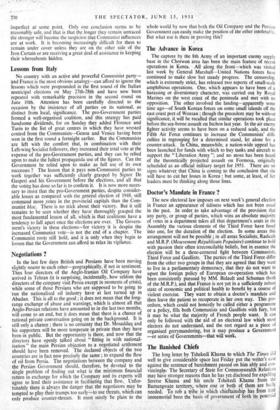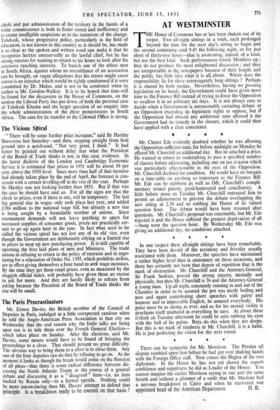The Banished Chiefs
The long letter by Tshekedi Khama to which The Times did well to give considerable space last Friday put the writer's case against the sentence of banishment passed on him ably and con- vincingly* The Secretary of State for Commonwealth Relations may have stronger reasons than he has yet disclosed for expelling Seretse Khama and his uncle Tshekedi Khama from the Bamangwato territory. where one or both of them are badly needed. To rob a tribe in which chieftainship has from time immemorial been the basis of government of both its potential chiefs and put administration of the territory in the hands of a white commissioner is both to foster unrest and inefficiency and to create intelligible suspicions as to the intentions of the change. Tshekedi, whose progressive policy, particularly in the field of education, is not known in this country as it should be, has made it as clear as the spoken and written word can make it that he recognises Seretse unreservedly as the lawful chief, but he has strong reasons for wanting to return to his home to look after his extensive ranching interests. To banish one of the ablest men in South Africa, against whom no resemblance of an accusation can be brought. on vague allegations that his return might cause unrest is an injustice which would be rightly condemned if it were committed .by Dr. Malan, and is not to be condoned when its author is Mr. Gordon-Walker. It is to be hoped that time.will be found for the discussion in the House of Commons, on the motion the Liberal Party has put down, of both the personal case of Tshekedi Khama and the larger question of an enquiry into the whole administration of the ,three protectorates in South Africa. The case for its transfer to the Colonial Office is strong.



































 Previous page
Previous page